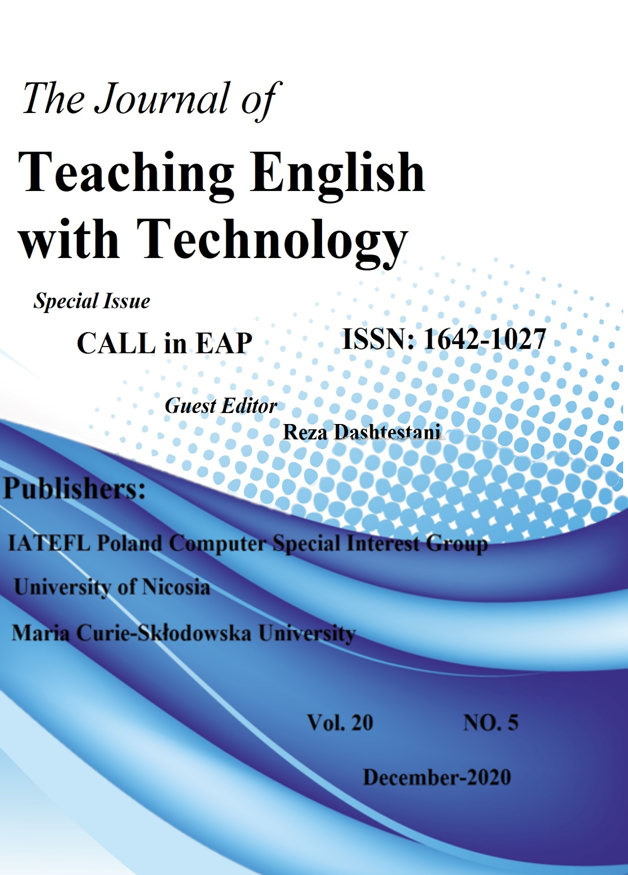LEARNING SPECIFIC ACADEMIC VOCABULARY USING MALL: EXPERIENCE FROM COMPUTER SCIENCE STUDENTS
LEARNING SPECIFIC ACADEMIC VOCABULARY USING MALL: EXPERIENCE FROM COMPUTER SCIENCE STUDENTS
Author(s): Risa Rumentha SimanjutakSubject(s): Foreign languages learning
Published by: IATEFL Poland Computer Special Interest Group and The University of Nicosia
Keywords: ESAP; MALL; mobile dictionary; Computer Science
Summary/Abstract: This study investigated the experiences of students in learning specific academic English vocabularies (ESAP) through the use of a mobile dictionary called SPEARA. The mobile app was designed to help the students learn the use of specific words, providing definitions and examples of use from authentic sources. The study aimed at identifying points of learning students experienced when using the mobile-assisted language learning (MALL) by answering two questions: first, to what extent students improved their ESAP using MALL and second, how students perceived MALL for studying specific words in Computer Science. Data for this study were collected from 113 Computer Science students enrolled in English for Academic Purposes classes. Two data sets were compiled in this mixed-method study. The first data set consisted of test scores, and the second data set contained transcripts from interviews with students and students’ essays. Findings showed significant learning improvement in the use of MALL to students’ vocabulary knowledge (SD=0.992). Students perceived leaning using MALL to be both positive and rewarding. Interestingly, students revealed the use of MALL could not replace human interactions. Human interactions could enrich students’ understanding and allowed the exchange of ideas. Further implications on human-interactions in MALL and on the future investigation were also discussed.
Journal: Teaching English with Technology
- Issue Year: 20/2020
- Issue No: 5
- Page Range: 87-107
- Page Count: 21
- Language: English

